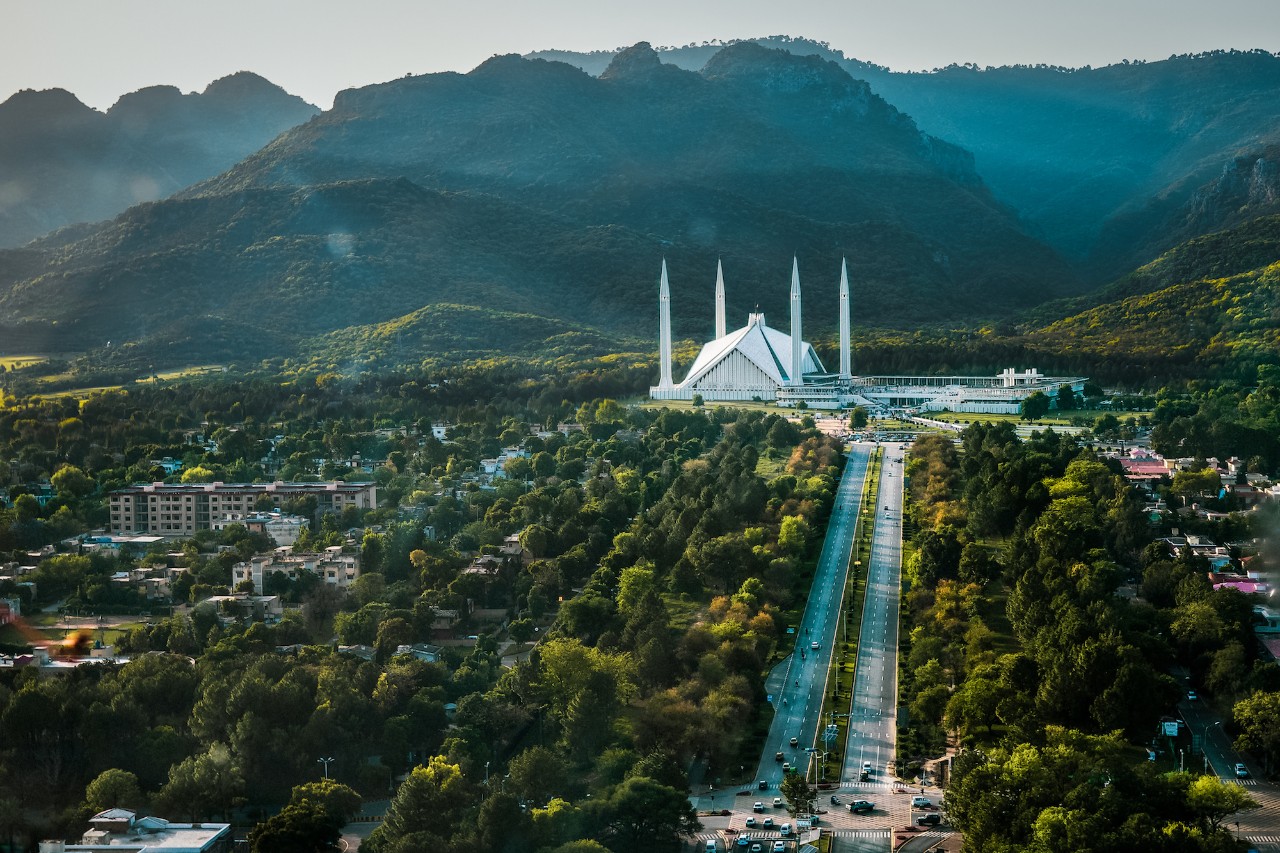Pakistan, a country rich in culture, history, and natural beauty, has gained attention as a potential property investment destination. With emerging urban development, relatively affordable prices, and a growing real estate market, Pakistan presents appealing opportunities for foreign buyers. However, the question remains: can foreigners buy property in Pakistan? This guide explores the legalities, advantages, and important considerations for foreign nationals investing in Pakistani real estate.

Can Foreigners Buy Property in Pakistan?
Yes, foreigners can buy property in Pakistan, but they must follow specific conditions and procedures. Pakistan allows foreign nationals to own property, but they must obtain official permission from the government, usually through the Board of Investment (BOI). Foreign buyers must fulfill certain requirements, including registering with the BOI and obtaining a No Objection Certificate (NOC) from the Ministry of Interior.
This process is necessary to ensure that the purchase complies with Pakistan’s legal framework for foreign investments and does not involve restricted or sensitive areas.
Why Buy Property in Pakistan?
There are several compelling reasons for foreigners to consider buying property in Pakistan. With its rapidly developing real estate sector, economic opportunities, and diverse landscapes, Pakistan offers a unique market for residential and commercial real estate investors. Here are some of the main reasons to consider investing in property in Pakistan:
Affordable Property Prices
Compared to other international markets, real estate in Pakistan is relatively affordable. Foreign buyers can find various options, from luxurious apartments in bustling cities like Karachi, Lahore, and Islamabad to more budget-friendly choices in emerging areas. The cost of property in Pakistan is generally lower than in many other countries, allowing investors to maximize value.
Growing Real Estate Sector
Pakistan’s real estate market has seen substantial growth in recent years, with a range of developments in both the residential and commercial sectors. Major cities have experienced a real estate boom with new housing societies, commercial complexes, and mixed-use projects. This growth has made the property market in Pakistan more attractive for investors looking to appreciate potential and rental income.
Strategic Location and Economic Potential
Situated in South Asia and sharing borders with countries like China, India, and Afghanistan, Pakistan is strategically positioned with access to major regional markets. The China-Pakistan Economic Corridor (CPEC) initiative has brought significant infrastructure investment, fueling the development of new transportation links, energy projects, and industrial zones. These projects are anticipated to boost Pakistan’s economy and increase the demand for real estate in key areas.
Investment Opportunities in Emerging Areas
Pakistan’s real estate market is not limited to major cities; emerging areas such as Gwadar, with its deep-sea port, present promising opportunities. As new developments and infrastructural improvements reach these regions, property values are expected to rise. Gwadar, in particular, has drawn substantial foreign interest due to its planned economic zones and connectivity projects under CPEC, making it a strategic choice for long-term investment.
Favorable Rental Yields
With a growing population and increased urbanization, there is a high demand for rental properties, especially in cities like Karachi, Lahore, and Islamabad. Foreign investors can potentially earn attractive rental yields by purchasing property in these cities and renting them out to local residents or businesses. Rental income can be a steady source of revenue, especially in prime locations.
Steps for Foreigners Buying Property in Pakistan
While the process of buying property in Pakistan is generally similar to that in other countries, foreign buyers need to follow specific steps due to government regulations. Here’s a breakdown of the process:
Step 1: Obtain Permission from the Board of Investment
Foreigners intending to buy property in Pakistan must first seek permission from the Board of Investment (BOI). This step involves submitting an application detailing the purpose of the purchase, the type of property, and the intended use. The BOI will evaluate the request and issue the necessary approvals if all criteria are met.
Step 2: Obtain a No Objection Certificate (NOC)
The Ministry of Interior requires foreign buyers to secure a No Objection Certificate (NOC) as part of the purchase process. This document is crucial for confirming that the foreign national is authorized to own property in Pakistan. The NOC ensures that the purchase does not interfere with national security concerns or other legal restrictions.
Step 3: Engage a Real Estate Agent
It is advisable to work with a local real estate agent who has experience with foreign clients. Agents can help foreign buyers navigate the market, locate suitable properties, and negotiate favorable terms. Additionally, real estate agents are familiar with the regulatory requirements and can assist in ensuring that all paperwork is completed accurately.
Step 4: Conduct Due Diligence and Verify Property Titles
Before proceeding with the purchase, conducting thorough due diligence on the property is essential. Verifying the property’s title, ownership, and encumbrances is critical to avoid future disputes. Hiring a lawyer for this step is recommended to ensure that all legal aspects are thoroughly reviewed and the property title is clear.
Step 5: Sign the Sales Agreement and Transfer Ownership
Once the necessary approvals are in place, the buyer and seller can sign a sales agreement. This contract should specify the terms of sale, price, and any conditions. After the agreement is signed, the buyer will transfer the funds, and ownership is officially transferred. The new owner must register the property with the relevant land authority to finalize the purchase.
Considerations for Foreign Buyers in Pakistan
Foreign nationals should consider a few additional factors when purchasing property in Pakistan. These include tax implications, property management needs, and understanding local regulations that may impact ownership and investment.
Tax Obligations for Foreign Property Owners
Foreigners buying property in Pakistan are subject to certain taxes, including capital gains tax and stamp duties. It is advisable to consult a tax advisor familiar with Pakistani tax law to understand these obligations and any potential exemptions.
Property Management for Foreign Investors
Hiring a property management company can be beneficial for those who intend to use the property as a rental investment. Management companies handle tenant screening, rent collection, and property maintenance, which can be advantageous for foreign owners who may not reside in Pakistan.
Understanding Legal Restrictions and Requirements
While Pakistan welcomes foreign investment, some foreign ownership restrictions exist, particularly in sensitive or strategic areas. To ensure compliance with national laws, it’s essential to verify that the property is not located in a restricted zone.
FAQs
Are foreigners allowed to own agricultural land in Pakistan?
Foreigners are generally restricted from purchasing agricultural land in Pakistan. However, the government may allow foreign ownership in some cases, particularly for foreign companies involved in specific agricultural projects.
Can a foreigner get a mortgage to buy property in Pakistan?
Mortgages are not commonly available to foreign buyers in Pakistan. Most foreign nationals pay in cash or secure financing through international banks or private financing arrangements.
What are the taxes applicable to foreigners buying property in Pakistan?
Foreigners are subject to the same property taxes as local buyers, including stamp duties, capital gains, and property taxes. It is advisable to consult a tax professional for detailed information on tax obligations.
Is property ownership in Pakistan leasehold or freehold for foreigners?
Foreigners can acquire freehold property in Pakistan, meaning they have full ownership rights. Leasehold options may also be available, but freehold ownership is common in urban residential areas.
Are there restrictions on renting a property owned by a foreigner in Pakistan?
No, foreigners can rent out their property in Pakistan without restrictions. However, they must ensure compliance with local tax regulations, and rental income may be subject to Pakistani income tax.
Conclusion
Pakistan’s real estate market offers many opportunities for foreign investors interested in affordable property, growth potential, and favorable rental yields. While there are specific requirements for foreign buyers, such as BOI approval and obtaining an NOC, these steps are manageable with the proper guidance. From vibrant city centers to emerging investment hubs, Pakistan has much to offer foreign property buyers, making it a viable destination for those seeking to diversify their investment portfolio in South Asia.










